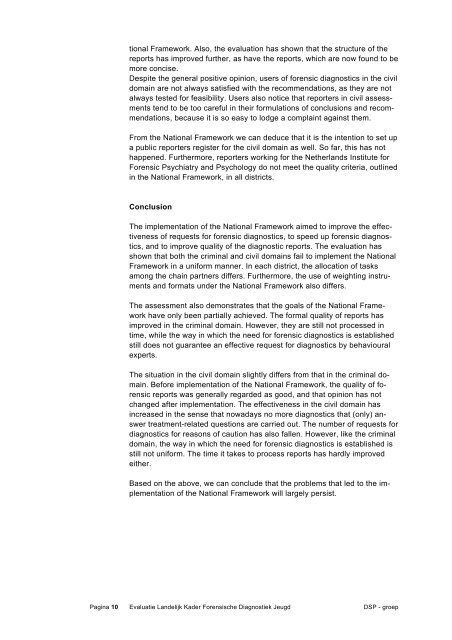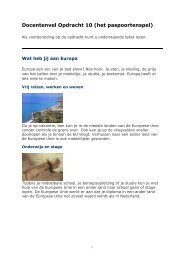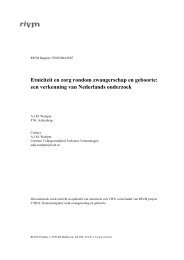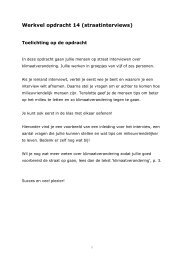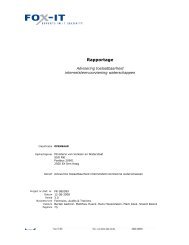Evaluatie Landelijk Kader Forensische ... - Europa morgen
Evaluatie Landelijk Kader Forensische ... - Europa morgen
Evaluatie Landelijk Kader Forensische ... - Europa morgen
You also want an ePaper? Increase the reach of your titles
YUMPU automatically turns print PDFs into web optimized ePapers that Google loves.
tional Framework. Also, the evaluation has shown that the structure of the<br />
reports has improved further, as have the reports, which are now found to be<br />
more concise.<br />
Despite the general positive opinion, users of forensic diagnostics in the civil<br />
domain are not always satisfied with the recommendations, as they are not<br />
always tested for feasibility. Users also notice that reporters in civil assessments<br />
tend to be too careful in their formulations of conclusions and recommendations,<br />
because it is so easy to lodge a complaint against them.<br />
From the National Framework we can deduce that it is the intention to set up<br />
a public reporters register for the civil domain as well. So far, this has not<br />
happened. Furthermore, reporters working for the Netherlands Institute for<br />
Forensic Psychiatry and Psychology do not meet the quality criteria, outlined<br />
in the National Framework, in all districts.<br />
Conclusion<br />
The implementation of the National Framework aimed to improve the effectiveness<br />
of requests for forensic diagnostics, to speed up forensic diagnostics,<br />
and to improve quality of the diagnostic reports. The evaluation has<br />
shown that both the criminal and civil domains fail to implement the National<br />
Framework in a uniform manner. In each district, the allocation of tasks<br />
among the chain partners differs. Furthermore, the use of weighting instruments<br />
and formats under the National Framework also differs.<br />
The assessment also demonstrates that the goals of the National Framework<br />
have only been partially achieved. The formal quality of reports has<br />
improved in the criminal domain. However, they are still not processed in<br />
time, while the way in which the need for forensic diagnostics is established<br />
still does not guarantee an effective request for diagnostics by behavioural<br />
experts.<br />
The situation in the civil domain slightly differs from that in the criminal domain.<br />
Before implementation of the National Framework, the quality of forensic<br />
reports was generally regarded as good, and that opinion has not<br />
changed after implementation. The effectiveness in the civil domain has<br />
increased in the sense that nowadays no more diagnostics that (only) answer<br />
treatment-related questions are carried out. The number of requests for<br />
diagnostics for reasons of caution has also fallen. However, like the criminal<br />
domain, the way in which the need for forensic diagnostics is established is<br />
still not uniform. The time it takes to process reports has hardly improved<br />
either.<br />
Based on the above, we can conclude that the problems that led to the implementation<br />
of the National Framework will largely persist.<br />
Pagina 10 <strong>Evaluatie</strong> <strong>Landelijk</strong> <strong>Kader</strong> <strong>Forensische</strong> Diagnostiek Jeugd DSP - groep


